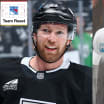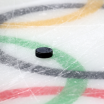A role reversal allowed the Pittsburgh Penguins to defeat the Ottawa Senators 3-2 in Game 4 of the Eastern Conference Final at Canadian Tire Centre on Friday.
The best-of-7 series is tied 2-2, and the big question is which team will make the proper adjustments in Game 5 at PPG Paints Arena on Sunday (3 p.m. ET; NBC, CBC, TVA Sports) to move within one win of reaching the Stanley Cup Final.
"This has made for an interesting cat-and-mouse type of game where, yeah, it's clogged up and it can create almost a soccer game-like, where it's puck possession or it's battles and suddenly there is a set play -- boom, a shot on goal and it's dangerous because it could be the one goal that makes a difference," former NHL goaltending coach Jim Corsi said. "So the series is tied, and rightly so."
\[RELATED: Complete Penguins vs. Senators series coverage\]
The Penguins made the adjustments for Game 4 after losing 5-1 in Game 3 on Wednesday.
Corsi said the Senators had trouble acting on their game plan in the first period because the Penguins did a good job of finding shooting lanes, especially created off of low puck movement, to get the puck on net, forcing Ottawa to ice the puck or goalie Craig Anderson to freeze it to set up a faceoff in the Senators' zone.
The Penguins won seven of 10 faceoffs in the offensive zone in the first period. They won 10 of 16 at even strength and 13 of 21 overall. Pittsburgh led 1-0 after the period.
It was vastly different from Game 3, when the Senators won 14 of 19 faceoffs in the first period, including five of seven in the offensive zone, and had a 4-0 lead 12:52 into the game.
"We talked after Game 3 about what Ottawa was creating in the offensive zone by throwing pucks at the net and causing Pittsburgh's 'D' zone coverage to look inside while the puck went outside and the next thing you know they're running around," Corsi said. "Well, Pittsburgh threw more pucks at the net in Game 4. Although the first period finished 1-0 on a rush chance that wouldn't have been a chance if it didn't go in, there were 10 faceoffs in Ottawa's 'D' zone and there were two in Pittsburgh's 'D' zone. It wasn't so clean for Ottawa to give their usual bump pass by collecting the puck or blocking a shot to move on out."
Corsi said the sustained offensive zone time didn't necessarily hurt Ottawa. In fact, he had the Senators with a 5-4 advantage in scoring chances in the first period and 16-13 for the game. However, the Penguins outshot the Senators 35-26.


















